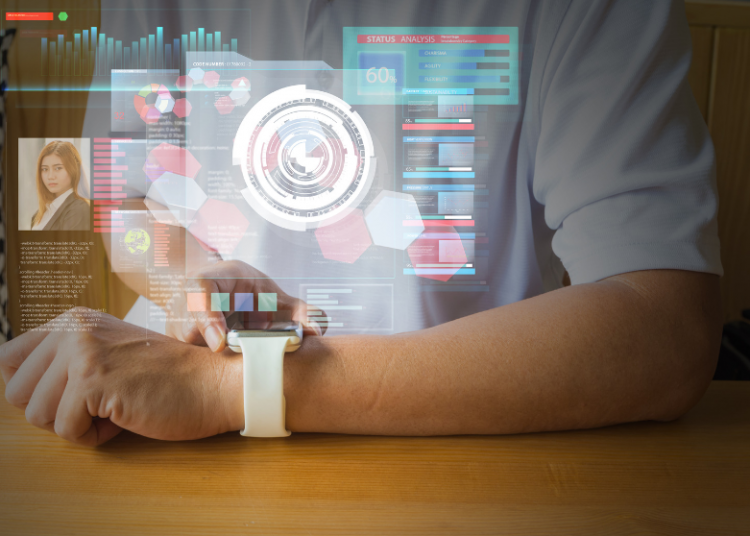In today’s digital age, ensuring personal online security is more critical than ever before. With cyber threats becoming increasingly sophisticated, it’s essential to take proactive measures to safeguard your digital identity and protect your sensitive information. Here are ten essential tips to help you enhance your online security:
1. Creating Strong Passwords
Importance of Strong Passwords: Weak passwords are like an open invitation to hackers. Creating strong, unique passwords is the first line of defense against unauthorized access to your accounts.
Tips for Creating Secure Passwords: Utilize a combination of uppercase and lowercase letters, numbers, and special characters. Avoid using easily guessable information such as your name, birthdate, or common words. Consider using a reputable password manager to generate and store complex passwords securely.
2. Using Two-Factor Authentication (2FA)
Explanation of Two-Factor Authentication: 2FA adds an extra layer of security by requiring not only a password but also a second form of verification, such as a code sent to your phone.
Setting Up 2FA on Different Platforms: Many online services and platforms offer 2FA options in their security settings. Enable 2FA wherever possible to bolster your account security significantly.
3. Regular Software Updates
Importance of Software Updates: Software updates often contain patches for known security vulnerabilities. Regularly updating your operating system, apps, and antivirus software can prevent cyber attacks exploiting these vulnerabilities.
Methods to Ensure Regular Updates: Enable automatic updates whenever possible to ensure you’re always running the latest version of software. Additionally, regularly check for updates manually, especially for critical security patches.
4. Browsing Safely
Risks of Unsafe Browsing: Unsafe browsing habits can expose you to various online threats, including malware, phishing, and identity theft.
Tips for Safe Browsing: Stick to secure websites with HTTPS encryption, be cautious of clicking on suspicious links or ads, and consider using browser extensions that block malicious content.
5. Avoiding Phishing Attempts
What is Phishing?: Phishing is a deceptive tactic used by cybercriminals to trick individuals into revealing sensitive information, such as passwords or credit card details, by posing as a legitimate entity.
How to Recognize and Avoid Phishing Attempts: Be wary of unsolicited emails or messages asking for personal information. Verify the legitimacy of websites before entering sensitive data, and avoid clicking on links or downloading attachments from unknown sources.
6. Securing Personal Devices
Importance of Device Security: Your computers, smartphones, and tablets store vast amounts of personal data, making them prime targets for cyber attacks.
Tips for Securing Devices: Set up screen locks and biometric authentication, install reputable antivirus software, and regularly audit and remove unnecessary apps or programs.
7. Encrypting Sensitive Data
Importance of Data Encryption: Encryption scrambles your data into a format that can only be read with the correct decryption key, ensuring that even if your data is intercepted, it remains protected.
Methods for Encrypting Sensitive Data: Utilize encryption tools or features provided by your operating system or third-party software to encrypt files, folders, or entire storage devices containing sensitive information.
8. Using Secure Wi-Fi Connections
Risks of Unsecured Wi-Fi Networks: Public Wi-Fi networks are often unsecured, leaving your data vulnerable to interception by cybercriminals.
Tips for Secure Wi-Fi Usage: Avoid accessing sensitive information or conducting financial transactions on public Wi-Fi networks. Instead, use a virtual private network (VPN) to encrypt your internet connection and ensure your data remains secure.
9. Being Cautious with Personal Information
Risks of Sharing Personal Information Online: Oversharing personal information on social media or websites can expose you to identity theft, scams, or targeted attacks.
Strategies to Minimize Sharing Personal Data: Review your privacy settings on social media platforms, limit the amount of personal information you share publicly, and be cautious when providing personal details to unfamiliar websites or individuals.
10. Regular Backups
Importance of Regular Backups: Data loss can occur due to various reasons, including hardware failure, malware infections, or accidental deletion. Regularly backing up your data ensures you can recover important files in the event of a disaster.
How to Backup Data Effectively: Use a combination of local and cloud-based backup solutions to create redundant copies of your data. Schedule regular backups and verify their integrity to ensure you can restore your data when needed.
Conclusion
Protecting your digital identity and ensuring personal online security requires a proactive approach and adherence to best practices. By implementing the ten essential tips outlined above, you can significantly reduce the risk of falling victim to cyber threats and safeguard your sensitive information.

FAQs After The Conclusion
- Why are strong passwords important for online security?Strong passwords are essential for online security because they act as the first line of defense against unauthorized access to your accounts. Weak passwords are susceptible to brute-force attacks and can be easily guessed or cracked by hackers.
- What is the significance of using two-factor authentication (2FA)?Two-factor authentication adds an extra layer of security by requiring not only a password but also a second form of verification, such as a code sent to your phone. This significantly reduces the risk of unauthorized access to your accounts, even if your password is compromised.
- How can I recognize and avoid phishing attempts?Phishing attempts often involve deceptive emails or messages that mimic legitimate organizations or individuals. To avoid falling victim to phishing, be wary of unsolicited requests for personal information, verify the legitimacy of websites, and avoid clicking on suspicious links or attachments.
- What steps can I take to secure my personal devices?To secure your personal devices, make sure to set up screen locks and biometric authentication, install reputable antivirus software, and regularly update your operating system and apps to patch known security vulnerabilities.
- Why is it important to encrypt sensitive data?Encryption scrambles your data into a format that can only be read with the correct decryption key, ensuring that even if your data is intercepted, it remains protected from unauthorized access or exploitation.
- How can I ensure safe browsing habits?Safe browsing habits include sticking to secure websites with HTTPS encryption, being cautious of clicking on suspicious links or ads, and using browser extensions that block malicious content.
- What are the risks associated with unsecured Wi-Fi networks?Unsecured Wi-Fi networks expose your data to interception by cybercriminals, potentially resulting in identity theft, financial fraud, or unauthorized access to your accounts. It’s essential to avoid accessing sensitive information or conducting financial transactions on public Wi-Fi networks.
- Why should I regularly back up my data?Regular backups are crucial for protecting against data loss due to hardware failure, malware infections, or accidental deletion. By creating redundant copies of your data using local and cloud-based backup solutions, you can ensure you can recover important files in the event of a disaster.
















